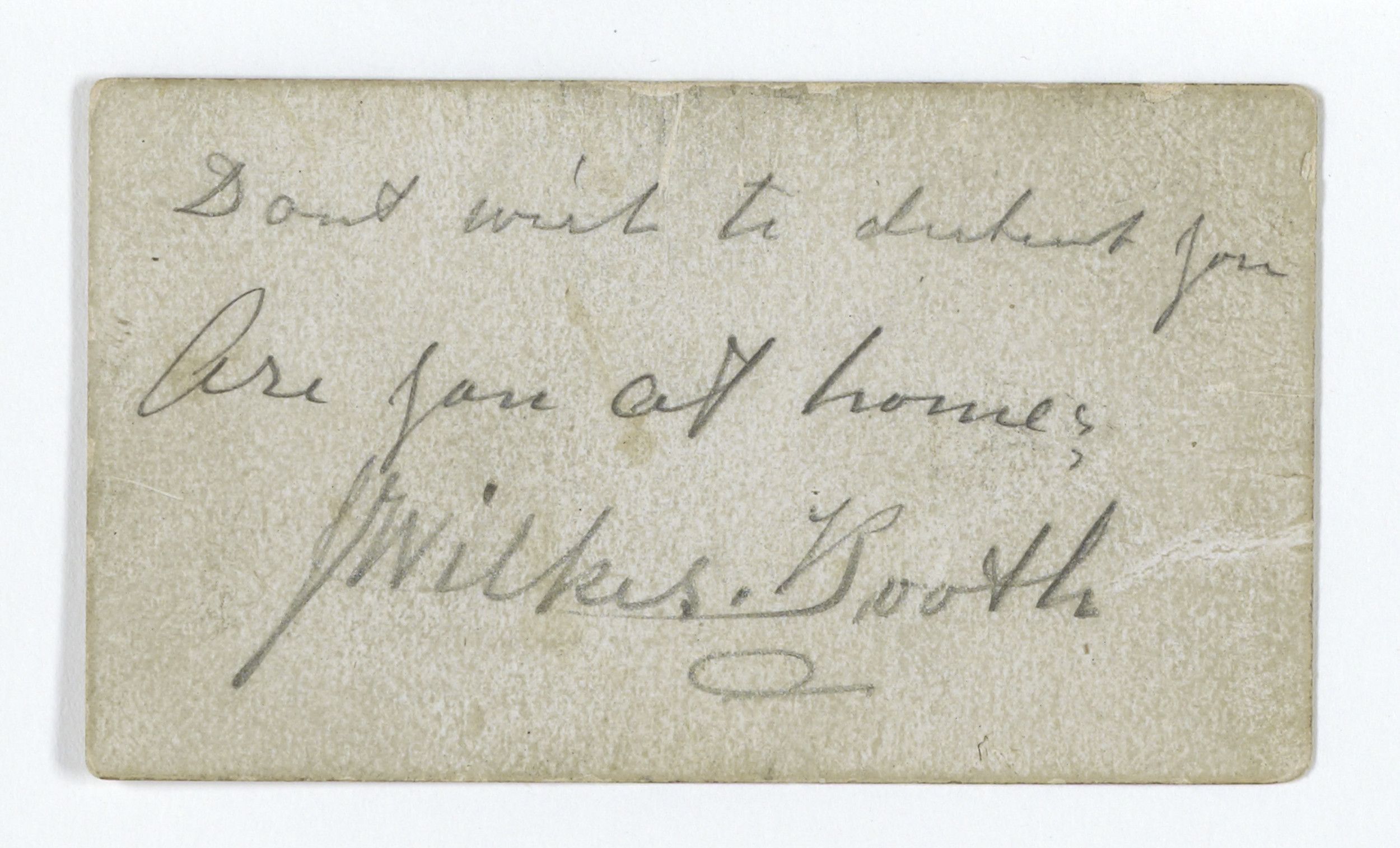John Wilkes Booth's Calling Card
4/14/1865
Add to Favorites:
Add all page(s) of this document to activity:

Add only page 1 to activity:
Add only page 2 to activity:
This small calling card was handwritten by John Wilkes Booth and left for Vice President Andrew Johnson at his Washington, DC, hotel. The card reads: "Don't wish to disturb you. Are you at home? J. Wilkes Booth."
Originally, John Wilkes Booth designed an elaborate plan to kidnap Abraham Lincoln and take him to Richmond. Once a hostage, the Confederacy would demand that prisoner exchanges resume. (Previously, the Union and Confederate armies had an agreement to exchange prisoners. This fell apart when the Confederacy refused to exchange black soldiers.) However, at his second inaugural, Lincoln revealed some of his early plans for Reconstruction, which included giving blacks the right to vote. It was about at that time that Booth’s plans changed from kidnapping to assassination.
His plan grew to involve killing numerous high-level individuals. On the afternoon of April 14, 1865, just hours before he assassinated President Lincoln, John Wilkes Booth left this card for Vice President Johnson. Booth’s co-conspirator George Atzerodt was to kill Johnson that night; but he lost his nerve and did not make an attempt. Historians continue to debate why Booth left his card with Johnson.
Originally, John Wilkes Booth designed an elaborate plan to kidnap Abraham Lincoln and take him to Richmond. Once a hostage, the Confederacy would demand that prisoner exchanges resume. (Previously, the Union and Confederate armies had an agreement to exchange prisoners. This fell apart when the Confederacy refused to exchange black soldiers.) However, at his second inaugural, Lincoln revealed some of his early plans for Reconstruction, which included giving blacks the right to vote. It was about at that time that Booth’s plans changed from kidnapping to assassination.
His plan grew to involve killing numerous high-level individuals. On the afternoon of April 14, 1865, just hours before he assassinated President Lincoln, John Wilkes Booth left this card for Vice President Johnson. Booth’s co-conspirator George Atzerodt was to kill Johnson that night; but he lost his nerve and did not make an attempt. Historians continue to debate why Booth left his card with Johnson.
This primary source comes from the Records of the Office of the Judge Advocate General (Army).
National Archives Identifier: 7873510
Full Citation: John Wilkes Booth's Calling Card; 4/14/1865; MM-2251; Investigation and Trial Papers Relating to the Assassination of President Abraham Lincoln; Court Martial Case Files, 12/1800 - 10/1894; Records of the Office of the Judge Advocate General (Army), Record Group 153; National Archives Building, Washington, DC. [Online Version, https://www.docsteach.org/documents/document/john-wilkes-booths-calling-card, April 19, 2024]Rights: Public Domain, Free of Known Copyright Restrictions. Learn more on our privacy and legal page.





